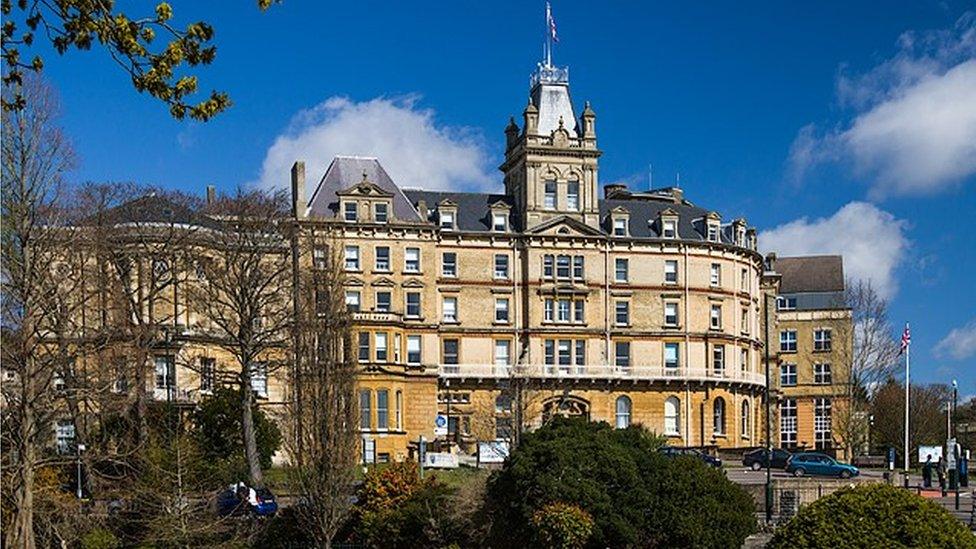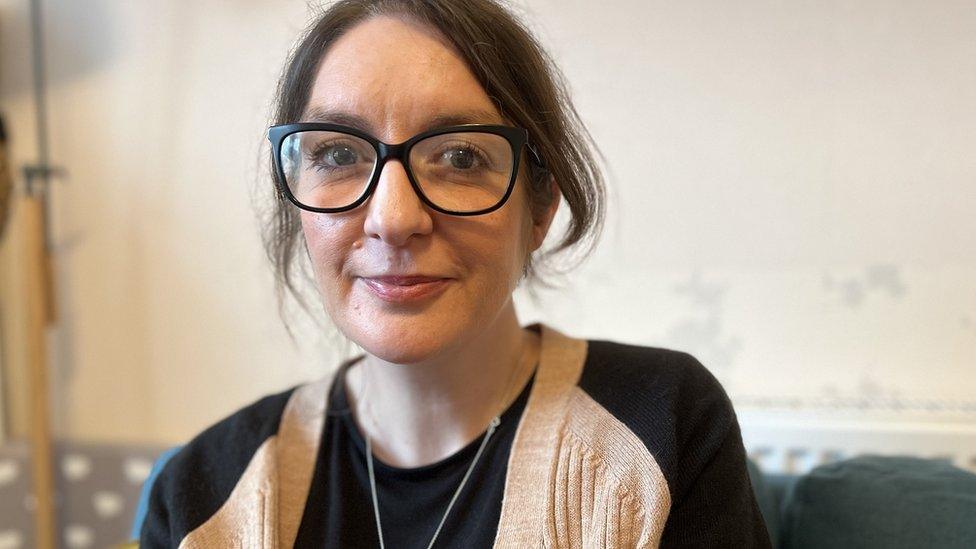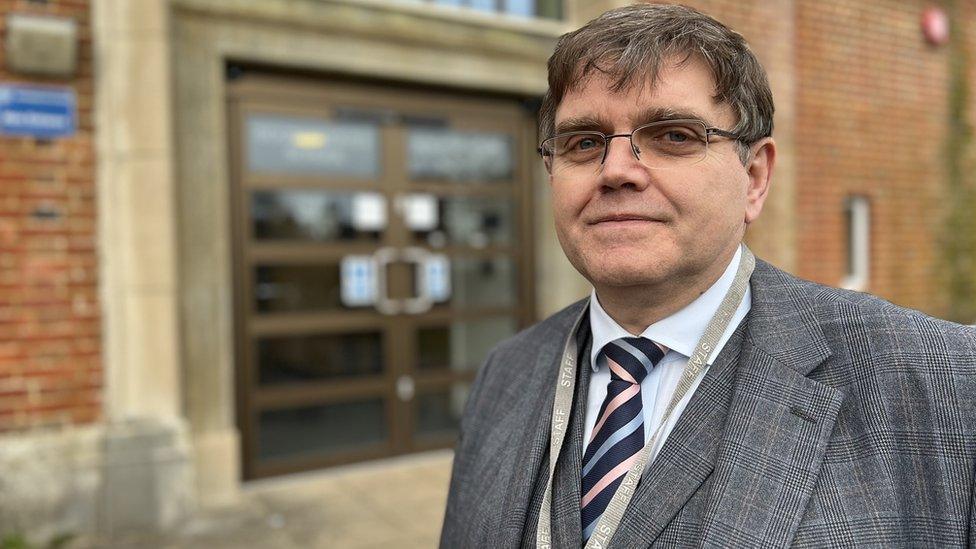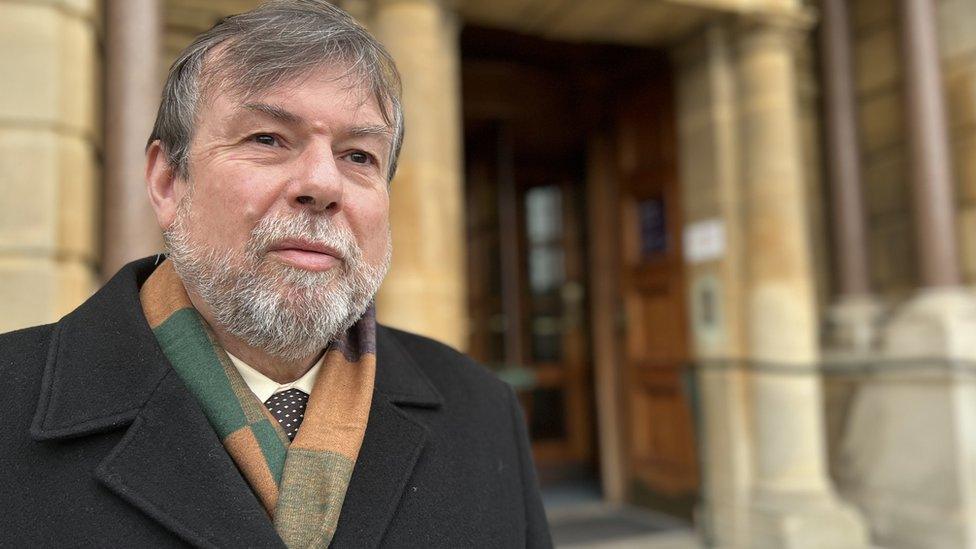SEND: Bournemouth, Christchurch and Poole schools face 'terrifying' cuts
- Published

Bournemouth, Christchurch and Poole (BCP) Council has blamed rising costs and demand for SEND support
Schools face "terrifying" cuts as part of a government rescue plan following overspending of a council's SEND budget, a teachers' union has warned.
Bournemouth, Christchurch and Poole (BCP) Council has been asked to join the government's Safety Valve scheme as its deficit is predicted to be £63.4m.
More than 2,000 people have signed a petition opposing school spending cuts.
The government said Safety Valve was about using "available funding in the best way".
The national programme is designed to help local authorities tackle overspending on special educational needs and disabilities (SEND) services.
It offers investment from Department for Education (DfE) but local authorities must agree to balance their education budget.
BCP Council is forecasting a £63.4m designated schools grant (DSG) budget deficit by 31 March as a result of overspending its SEND budget.
A plan to balance BCP Council's books in five years has been rejected by head teachers and the council, but they have offered to do it in 15 years.
Head teachers rejected plans to cut 0.5% from their budgets to fund SEND support at the authority's schools forum on Monday.

Rachel Filmer said she was concerned about the impact of Safety Valve
Parents also fear joining Safety Valve will mean less money to support SEND children and in school budgets overall.
Poole resident Rachel Filmer, whose sons have autism, said "things are already poor" for SEND children.
"If budgets are cut our children will suffer, more SEND children in mainstream school will impact them but also every child in every classroom, this could be devastating. Things are already poor."
Kate Carter, chair of primary school head teachers in the area, said schools were already setting deficit budgets, making cuts and trying to compensate for part-funded pay increases and inflation rises.
She told the BBC: "A number of heads have spoken to me about having to make redundancies and also concerns over the safety of their children with any further cuts in staffing."
Dr Dorian Lewis, headmaster of Bournemouth School, said schools were being asked to bear more responsibility for students with additional needs, while seeing funding reduced.
"No concern has been shown for the potential impact of accepting such proposals on the quality and the breadth of provision for our young people, or how they might impact on the school workforce," he added.

Dr Dorian Lewis said cuts would affect both students and teachers
Ian McCann, regional organiser for the National Education Union, said it was "really concerned about schools having less in their budgets for the next 15 years".
"It is terrifying for everyone in the school community. There is simply not enough money at the moment - to lose money on top of that with costs going up, it is unattainable for any school to carry on as it is," he added.
BCP Council said it told DfE it could not balance its DSG budget within five years without cutting schools' budgets by more than 10%.

Richard Burton said the council needed to improve our SEND service
Richard Burton, portfolio holder for children and young people, said the five-year plan was "unworkable".
"SEND is costing the local authority more than we are being given, that's why there's a deficit," he added.
"We need to cut the money being spent on specialist private schools and educate our children in mainstream schools, and local authority provision."
The council said it intended to take the DfE funding and offer to balance its books within 15 years.
DfE said it could not comment on ongoing Safety Valve negotiations but added participation in the programme was "entirely voluntary".
"The programme is not about cuts to services but ensuring local authorities use their available funding in the best way, for the benefit of children and young people," it added.

Follow BBC South on Facebook, external, X, external, or Instagram, external. Send your story ideas to south.newsonline@bbc.co.uk, external.
- Published15 January 2024

- Published20 September 2023

- Published4 August 2023

- Published2 March 2023
